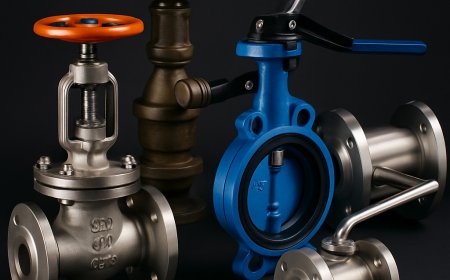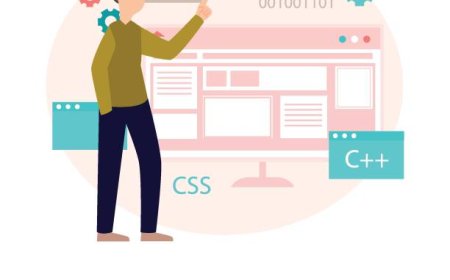Choosing A Librarian Course: Key Factors Every Student Must Know
Explore key insights on choosing a librarian course and discover how studying at a top private university in Arunachal Pradesh can shape your future in library science.

If youve ever imagined yourself working in a peaceful, organized environment surrounded by books, research materials, and digital archives, then enrolling in a librarian course might be your perfect next step. Whether youre a working professional looking for a career switch, a homemaker exploring flexible job options, or a boutique owner aiming to manage inventory systems efficiently, the field of library and information science offers vast opportunities. In this blog, well dive deep into the key aspects of choosing the right course and why studying at a recognized Private University in Arunachal Pradesh can give you a significant edge.
What Is a Librarian Course?
A librarian course refers to academic programs that prepare individuals to manage, organize, and retrieve information across various formatsprint, digital, and multimedia. These courses are generally offered at diploma, bachelors (B.Lib), and masters (M.Lib) levels. The focus is not just on books anymore; it extends to managing digital libraries, cataloging e-resources, and applying technology in modern information centers. These skills are valuable in schools, universities, research institutions, public libraries, and even corporate settings.
Why Choose a Librarian Course?
The importance of librarians has grown beyond traditional bookkeeping. Todays librarians are digital resource managers, information curators, and learning facilitators. Pursuing a librarian course is a great fit for individuals who enjoy organization, research, and contributing to education and literacy. Its especially appealing for families and working professionals seeking careers with stability, flexibility, and purpose.
Types of Librarian Courses
Understanding the types of programs available can help you choose the right one based on your academic background and career goals.
1. Certificate and Diploma Programs
Short-term courses are ideal for entry-level positions. These focus on basics like cataloging, reference services, and record maintenance.
2. Bachelor of Library and Information Science (B.Lib.I.Sc)
A one-year program for graduates from any stream. This course focuses on library classification, digital resource management, and user service.
3. Master of Library and Information Science (M.Lib.I.Sc)
An advanced-level program that builds on B.Lib knowledge. It includes research methods, database management, and advanced digital archiving.
For boutique or fashion retailers who manage large customer databases or digital content, these programs can even enhance internal systems and customer service.
Curriculum Overview
A standard librarian course is designed to be both theoretical and practical. Subjects commonly include:
-
Library classification and cataloging
-
Information and communication technology (ICT)
-
Library automation and networking
-
Reference services and user studies
-
Preservation and conservation of documents
-
Research methods in information science
Many programs also include internships in libraries or information centers, ensuring hands-on learning and real-world exposure.
Career Opportunities After Completing a Librarian Course
Librarian roles are no longer limited to dusty bookshelves. Graduates can explore positions such as:
-
Academic librarian
-
Digital archivist
-
Knowledge manager
-
Information analyst
-
Records manager in government or corporate offices
-
Cataloguer in publishing houses or museums
Even retail businesses with inventory systems can benefit from having someone trained in organizing and maintaining structured databases.
How to Choose the Right Librarian Course
When considering a librarian course, several important factors should guide your decision:
1. Accreditation and Recognition
Make sure the course is offered by a recognized institution and follows the standards set by regulatory bodies like UGC. Opting for a reputed Private University in Arunachal Pradesh ensures your degree has nationwide credibility and value.
2. Course Content and Specialization
Check if the curriculum is up-to-date with current industry trends. Look for modules that include digital resource management, IT skills, and research training.
3. Faculty Expertise
Experienced faculty members with research or professional backgrounds bring valuable insight. Choose institutions where teachers have both academic and field experience.
4. Infrastructure and Library Access
The irony of studying a librarian course in a college with a poor library cannot be overstated. Choose a university that provides access to a well-equipped library, digital resources, and training tools.
5. Internship and Placement Support
Professional exposure through internships and job placement assistance is critical. Many Private Universities in Arunachal Pradesh have tie-ups with schools, public libraries, and educational institutions to offer practical training and career support.
Why Study at a Private University in Arunachal Pradesh?
Arunachal Pradesh is quickly emerging as a hub for quality higher education. Opting for a Private University in Arunachal Pradesh offers several advantages for librarian course students.
1. Affordable Yet High-Quality Education
Private universities in the region provide well-rounded education at a cost thats budget-friendly for working-class families and professionals.
2. Personalized Learning
Smaller class sizes mean more interaction with faculty and personalized guidanceideal for individuals rejoining academics after a break.
3. Focus on Modern Learning
With a focus on digital literacy, communication skills, and employability, these institutions are tailoring courses to meet the demands of 21st-century library science.
4. Inclusive and Culturally Rich Environment
Studying in the northeast offers exposure to a unique and diverse culture. Universities here foster inclusive learning environments, which are especially welcoming for students from different walks of life.
Who Should Enroll in a Librarian Course?
-
Working professionals seeking a peaceful and impactful second career
-
Families and homemakers aiming for a stable and flexible job profile
-
Boutique and retail owners interested in learning inventory or content organization skills
-
Students from any stream with a passion for learning, organizing, and helping others
With flexible study modes such as full-time, part-time, and distance learning, the course is accessible to a wide range of learners.
Admission Process
The admission process for most librarian courses is straightforward:
-
A bachelors degree (for B.Lib) or B.Lib degree (for M.Lib)
-
Minimum percentage as specified by the university (usually 50%)
-
Online or offline application with submission of academic records
-
Some universities may conduct interviews or entrance tests
Private universities in Arunachal Pradesh offer online portals for easy application, document uploads, and fee payments, making the process simple and stress-free.
Final Thoughts
If youre looking for a career that offers stability, intellectual engagement, and opportunities to serve educational institutions and communities, enrolling in a librarian course is a smart and rewarding choice. And by choosing to study at a reputable Private University in Arunachal Pradesh, you benefit from quality education, expert guidance, and modern infrastructureall in an affordable package.
Whether you're balancing work and studies, returning to education after a gap, or simply passionate about books and information, library science is a field that opens doors to a fulfilling future. As the digital transformation continues across industries, skilled information managers will only become more valuable. So take that first stepchoose the right course, the right college, and start your journey toward a smarter, better-organized world.



































